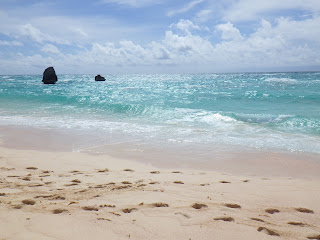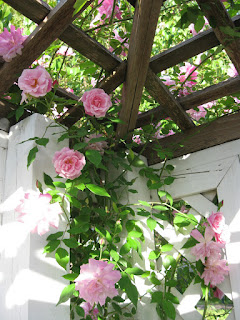It has been some time since I sat down to write on my blog. I seem to be the proof of my own hypothesis: that the stress of dealing with negative and undesirable events and situations can often result in a total suspension of activity - right now I am the epitomy of the "deer caught in headlights" phenomenon.
But it's not just that I appear to be more lethargic, and less motivated to "seize the day", it's also a stasis of mind. Like a dog chasing it's own tail, I seem to go around in circles, unable to escape the incessant repetition of the same thoughts, over and over again. There has been so much going on that it impacts on emotions as well - I feel I am in a state of constant anticipation - with the predominant fear of wondering what's round the next corner and always expecting it to be difficult or bad. It's being nervous to open emails or answer phones - holding my breath until I know for sure what it's all about. Sighing with relief when it's not negative.
And doesn't that just tie into the next known factor - anticipatory anxiety is a curse and just why can't I learn that for the most part, the incoming messages are not all hostile or insurmountable. In fact, very few are harbingers of doom.
I really need to learn to let go, to solve only the problems or the parts of the problem that I am capable of at the time, shut my mind off from the obviously inaccessible or insoluble ..... and move on. How about practicing what I preach - Mindfulness - staying in the moment, making the most of what you have presently.
Stress seems to make me stuck in time, unable to move forward unless I am able to have the problem or situation solved to my satisfaction. The problem with that is you miss out on all the positive going on around you. It's like being in an airplane that is circling a major airport for hours - unfulfilling, tedious and a useless waste of time.
Recent stress points: my brother Leigh's death in February, my mother's continuing battle with emphysema far away in South Africa and her death in July, living far away from grandchildren in Canada, experiencing Hurricane Nicole firsthand in Bermuda, losing our home to Hurricane Matthew in Grand Bahama, negotiating an imminent retirement from the school board, dealing with partners work situation - company closing down, trying to get our worldly goods off the island is bits and pieces, trying to sort out the condo issues on Grand Bahama island: dealing with condo owners who are quick to complain and criticize, but never offer solutions or volunteer to help, dealing with legal proceedings because of an illegal condo Board, a condo Board that caused financial fallout by underhandedly underinsuring our building so that condo fees did not increase, dealing with six months of project management to reconstruct and repair our home, and doing a lot of it long distance, spending weeks alone in Freeport trying to exhort tradesmen to complete their work timeously and professionally. And that's just to name the worst of the stress points over the last few months. Not in that list because they are just minor irritants: no car in Canada as it was totalled in an accident, not being in our own home, dealing with difficult renters in our primary home, trying to prepare for the next big cliff jump as we both move into retirement.
I hereby resolve to change my behavior forthwith! Out with the old and in with the new!
My goal - appreciate each day that I am given.
Concentrate on the positive and try, really try, to let go of the negative and the worry.
Seize the day!










































